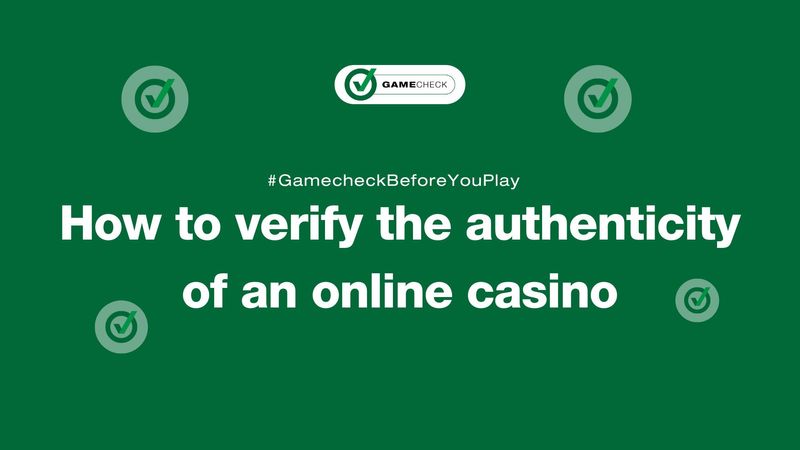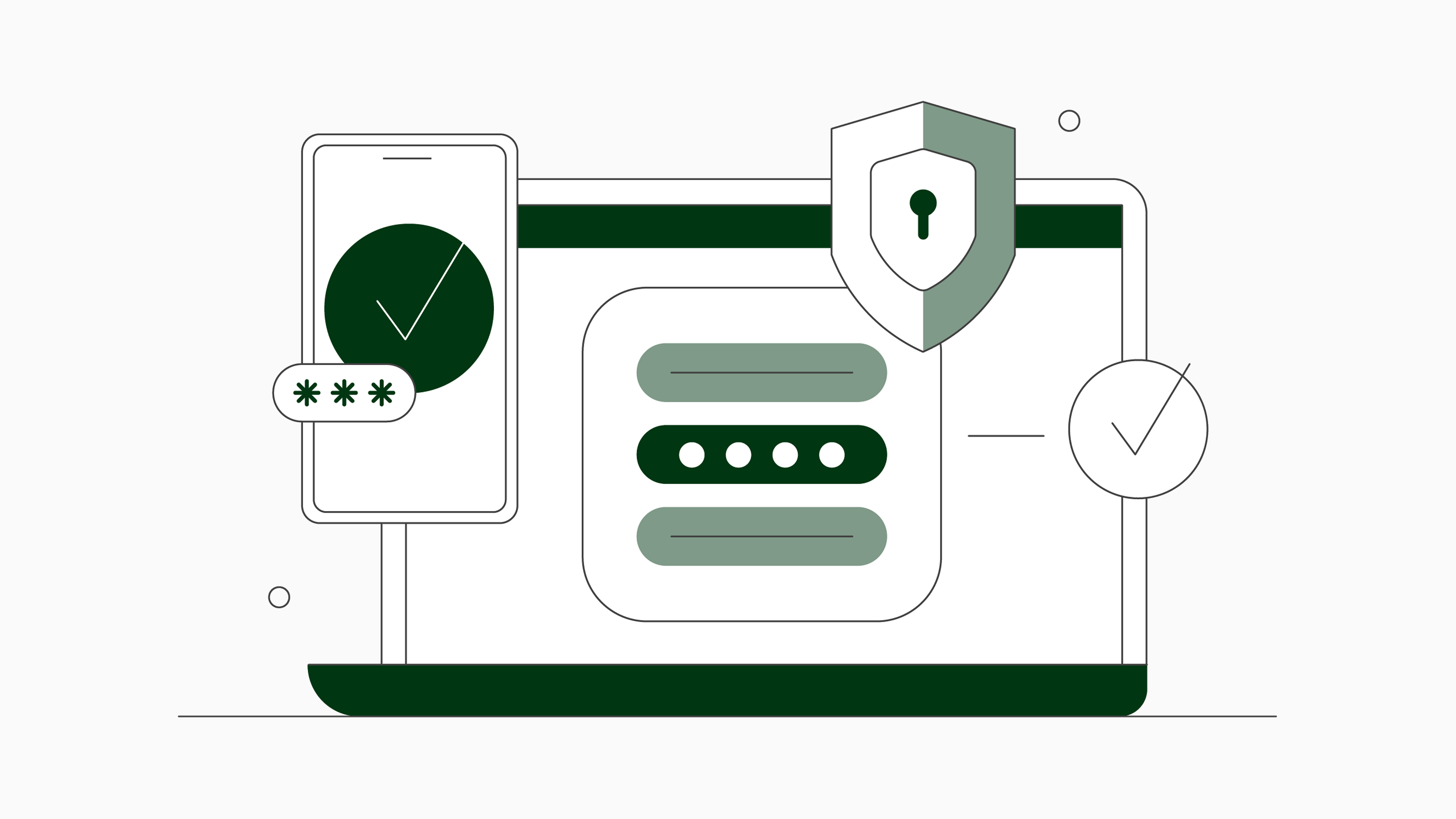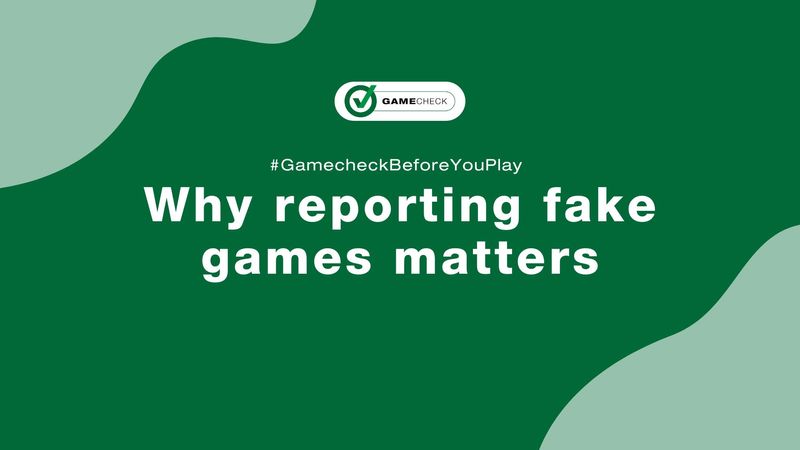How to verify the authenticity of an online casino
7 min read
While online casinos have become increasingly popular over the past two decades, not every platform found online is abiding by the rules. So, how can you be sure the online casino you are about to sign up for is legitimate and not a cleverly disguised scam? In this article we will go through the steps you can take to make sure you are playing on a legitimate platform.
Why is it important to verify an online casino?
Online scammers take advantage of inexperienced online casino players hoping to win big and enjoy the thrill that comes with playing games of chance.
Digital advancements and endless online entertainment options have led shady operators to prey on unsuspecting players, and, while the more experienced players are more discerning, new and seasoned players alike would benefit from a reminder of the red flags to watch out for when engaging with online casinos.
Some of the risks of playing on fake online casinos include:
- Data leaks
- Fake games
- Non-payment of winnings
Part of the fun when placing bets on online casinos is that you are not going to win every time, making those instances when players do cash out, all the sweeter.
To ensure that games are being won based both on genuine luck and skill, legitimate online casinos use a particular software: Random Number Generators (RNGs).
This software ensures that results from a game are completely random and fair.
As expected, untrustworthy online casino operators do not employ such technology, heavily rigging their games in ways to ensure players cannot win and these shady websites typically favour the house unfairly.
A verified online casino ensures that players receive their winnings promptly and in full.
On the other hand, fake online casinos often refuse to pay out winnings and may even vanish into thin air.
It is essential to verify the authenticity of an online casino to ensure fair play.
Since fake online casinos are unregulated by the authorities, they can manipulate game outcomes and if you lose unfairly there is no one to assist you.
Online casinos require players to provide personal information, including names, addresses, and banking details, to process deposits and withdrawals.
The EU General Data Protection Regulation (GDPR) governs how the personal data of individuals in the EU may be processed and transferred.
A legitimate online casino should have a clear privacy policy explaining how your personal data is stored and protected.
If you play on a fake site, your data is not protected at all.

How to verify the authenticity of an online casino
It is of utmost importance that players take the time to verify the legitimacy of a platform before signing up.
For an online casino to be officially recognised, it must have an active license from a Reputable Authority such as the UKGC and a game testing agency like eCOGRA.
Here are some key steps to follow:
Step 1: Does the online casino have a valid license?
The first and most important step is to check for a valid gambling license.
Trusted online casinos are regulated by Reputable Authorities.
Indeed, when scrolling to the bottom of such sites, they typically display licensing by Reputable Authorities such as the UK Gambling Commission (UKGC), the Isle of Man Gambling Supervision Commission (GSC), the Malta Gaming Authority (MGA), the Gibraltar Regulatory Authority (GRA), and the Curacao eGaming Authority (CEG).
These licensing bodies ensure that casinos adhere to ethical gambling practices, and provide mechanisms for player protection.
Click on the logo which should take you to the official licensing authority’s website.
One caveat to keep in mind is that it is easy for websites to pretend they are certified by using fake badges, so it is a good idea to visit the websites of these Reputable Authorities to check their online database for the online casino in question.
Many countries have strict laws regulating online gambling and players can face legal problems for using unlicensed casinos. Playing on illegal sites may violate local regulations, leading to fines or other penalties.
Check their certifications
Honest online casinos undergo regular audits by independent organisations. These audit companies verify the fairness of games and the casino’s financial transparency.
Look for certifications from eCommerce Online Gaming Regulation and Assurance (eCOGRA), iTech Labs, GLI (Gaming Laboratories International). and Technical Systems Testing (TST).
Does the account registration process make sense?
For online casino sites that deal with real money, new users are typically required to go through a two-phase registration process.
Firstly, users are asked to register with the casino itself, at which point players are often required to provide personal details, such as their full name, email address, username, home address, and phone number.
The second part of this two-step process generally involves depositing cash into an account for gameplay. Here, some online casinos will ask for additional documents to verify a new player’s identity, as part of their KYC and due diligence checks. This part of the process tends to be carried out from an online casino’s encrypted platform to ensure safety. Legitimate online casinos usually ask for this information once, and then it is saved in their systems.
Rogue online casinos will often ask for these details and verification documents multiple times. There have also been cases where untrustworthy online casino operators ask users to transfer sensitive information using unencrypted and unprotected means. This is widely viewed as a major red flag.
An honest online casino will have KYC procedures in place
KYC (Know Your Customer) refers to the process of verifying a player's identity to ensure they are legally eligible to gamble and to prevent underage gaming. Players must submit official documents like a passport, ID card, or driver’s license to prove their identity. A recent utility bill or bank statement is required to confirm the player's residence.
Payment verification – Players may need to provide proof of ownership of the payment method used, such as a credit card statement or screenshot of an e-wallet. Source of Funds Check – In some cases, especially for high rollers, operators may request evidence of the player's source of funds to comply with anti-money laundering (AML) regulations.
Why is KYC important in iGaming?
Many jurisdictions mandate KYC as part of their licensing requirements, as it helps operators detect and prevent illicit activities and protects vulnerable players. KYC also enhances trust by ensuring only legitimate players access the platform.
A player needs KYC to access a game provider’s website. A fraudulent casino does not require KYC, because they will send you to a fake game server with access to fake games.
Step 3: Read player reviews
Reviews are king – especially those written by seasoned and experienced professionals.
Reputable online casinos will be known to the community and are continuously reviewed by industry experts. Casino comparison sites of note limit their reviews to casinos that have been certified by reputable authorities, such as the UK Gambling Commission (UKGC) and the Malta Gaming Authority (MGA).
Read a few player reviews from trusted sources such as Trustpilot, AskGamblers, or Casino Guru, and check gambling forums such as Casinomeister or Reddit to see what other players are saying.
Look for regular complaints regarding pay-outs, unfair practices, or security breaches. While some negative reviews are normal, a pattern of serious complaints is most definitely a red flag.
Step 4: Assess security measures
Verify SSL encryption and secure payment methods before depositing money.
Trustworthy online casinos use SSL Encryption, Two-factor Authentication (2FA), and Secure Payment Options to protect their players. Fraudulent casinos often lack these security protocols, making players vulnerable to data breaches, identity theft, and financial fraud.
A secure website URL should begin with "https://" instead of "http://".
Many online casinos have made two-step verification (2SV) or two-factor authentication (2FA) a requirement, or at least a strong recommendation. In regulated markets such as the UK, Sweden, and Malta, 2FA is increasingly enforced. Most top-tier casinos implement it voluntarily. Even where it is not legally required, leading operators now integrate 2FA as a best practice for player security.
Step 5: Check the game providers
Trusted online casinos work with established game providers such as Evolution Gaming, Microgaming, NetEnt, Playtech, Pragmatic Play, Play'n Go, and Yggdrasil.
Game providers collect substantial player data and must also take effective measures to guarantee security and confidentiality.
Step 6: Transparent terms and conditions
Before investing your time and money into a particular operator, it is essential to compare different sites to understand which terms and conditions work best for you.
While it may seem boring, reading the terms and conditions is considered a must – and should any points be unclear, always raise them for clarity with customer support.
Real online casinos offer bonuses with clear terms and conditions, ensuring players understand any wagering requirements and withdrawal restrictions. On the other hand, fake casinos use misleading terms to lure players. Players may find themselves unable to withdraw winnings due to unreasonable bonus terms.
Step 7: How helpful is their customer support?
Players want to know that customer support is at hand to assist.
The customer support of legitimate online casinos is responsive and helpful, and available live 24/7 in most cases.
Poor customer support is another red flag.
Step 8: Examine the payment methods
Trustworthy online casinos make use of well-established payment methods, like credit and debit cards, bank transfers, and e-wallets.
Such online casinos allow players to deposit money safely and instantly, and withdraw their winnings within an industry-standard reasonable time frame, ranging from immediate transfers to up to a week.
If you come across an online casino that has unreasonable pay-out times or waiting times before a player can withdraw their winnings – such as months-long waiting times, it is a major sign that the operator may not be legitimate.
Step 9: Ensure responsible gambling features are available
Trustworthy online casinos offer responsible gambling tools to players, enabling them to set deposit limits, session duration limits, and wagering limits.
These tools help individuals manage their gambling activities responsibly. Fraudulent casinos often exploit problem gamblers by encouraging continuous play without limits and failing to provide responsible gambling tools. This can lead to financial and emotional distress for vulnerable players. Responsible gambling starts with choosing a trustworthy platform that prioritises security, fairness, and player protection.
Step 10: Want a faster way? Gamecheck before you play
Gamecheck is a verification tool that helps players ensure an online casino is legitimate. How does it work?
Gamecheck has developed a comprehensive database providing players with the information they require to make informed decisions about where to play, that can be accessed anywhere and at any time.
Simply enter the online casino URL before you start playing to receive immediate results regarding the authenticity of the online casino's game offerings. It’s simple and it’s free!
-1.png)
Conclusion
The importance of verifying an online casino’s authenticity cannot be overstated.
Ensuring the authenticity of an online casino is not just a precaution - it’s a necessity.
Falling into the trap of fraudulent online casinos can expose players to a host of risks, including financial loss, identity theft, and even legal consequences. Cybercriminals are constantly devising new ways to exploit players, making vigilance all the more essential.
That’s why taking the time to verify an online casino’s legitimacy before you play is crucial.
By following the steps outlined in this guide, you can confidently navigate the online gambling landscape and choose a legitimate platform.
And finally, never underestimate the power of intuition. If something feels off, trust your instincts - because when it comes to online gambling, caution is always the best bet.
Related Articles
-1-800x450.png)
How Gamecheck investigates online casinos











